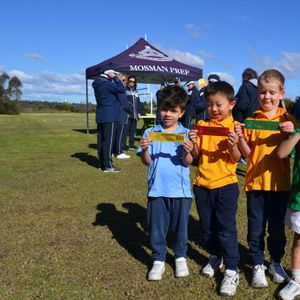Piloting the Digital Plane - Part 3
Technology is here to stay. Along with supporting the development of essential future-proofing skills, it plays a critical role in connection.
As co-pilots of the digital plane, parents need to help their children develop healthy and sustainable habits using technology, whether alone or with others, and fiercely protecting their basic needs (including enabling them to be bored from time to time).
This is the final reflection on Dr Kristy Goodwin’s proposed six areas of boundary consideration in relation to raising children in a digital age. Here we will look at ‘With whom?’ and ‘How?’, having previously covered ‘How much?’, ‘What?’, ‘When?’ and ‘Where?’.
With whom?
- Our children are by nature extremely vulnerable. They want to establish secure peer networks and to feel like they belong, so they can easily be preyed upon by online predators. Keeping teens safe online is amongst parents’ chief priorities when it comes to acting as the co-pilot of the digital plane.
- Giving children access to social media before the legal age, or before they’re emotionally and socially ready to cope with the complex demands, is incredibly risky, as they’ll instantly be exposed to unfamiliar people.
- It’s imperative that parents and carers know with whom their children are interacting and playing with online. Many apps and online games now have chat rooms and other modified aspects of social media.
- Parents need to have ongoing conversations with their kids about who they’re interacting with online and remind them that not everyone on the Internet is who they say they are.
- Conduct regular phone audits with your child on an ad hoc basis. Be transparent about why you’re doing it (because you want to ensure you know who they’re interacting with) and always do it with them present.
- We need to explicitly teach them and remind them how to interact appropriately online. Remind them that every comment, post, or profile has some form of digital DNA attached to it.
- Many children fear that they’ll be ‘digitally amputated’ if they go to a parent or teacher for help. It’s vital that we have open and ongoing conversations with our kids and remind them that they can come to you with any concerns.
How?
There are emerging concerns that teens’ excessive and inappropriate screen habits are having a negative impact on their physical health- including their vision, hearing, sleep, musculoskeletal issues and mental health. These are being impacted by screens.
Vision
- 20-20-20-20 rule - Children need to take frequent breaks when using digital devices. Every 20 minutes of using a screen, they need to take (at least) a 20-second break away from the screen, blink 20 times (this also helps to lubricate the eyes and prevent computer vision syndrome), to look at something at least 20-feet away (approximately 6 metres which helps to develop depth of vision) and to do something physically active for 20 seconds (star jumps, run on the spot, stretch to help the body calibrate and reposition so no unhealthy postures are adopted).
- Encourage screen-free breaks outside - Time in natural sunlight is vital for healthy visual development. Children need 2 hours/day of natural sunlight per week for healthy eyes.
Hearing
- Teens’ consistent use of headphones above safe hearing levels is a huge threat to their hearing. Research confirms that use of headphones above 75dB can cause permanent hearing loss. However, many parents are surprised to learn that most commercial mp3 players can reach more than 130dB (contingent upon the model of mp3 player and brand of headphones used)!
- Take care with volume control, use ear-muff type headphones to cancel some of the background noise, making it easier for children to listen to the music without having competing noises. Children should not use headphones for more than 60 minutes/day, at 60% maximum level (60:60 rule).
Physical Health
- Chiropractors, physiotherapists, and occupational therapists are anecdotally reporting increasing numbers of adolescents presenting with musculoskeletal problems. They attribute this increase to the early introduction of screens, the amount of time children are spending with screens, and the adoption of unhealthy ergonomic postures.
- Encourage regular breaks, teach correct ergonomics (e.g. feet should be flat on the ground and knees and spines should be at a 90° angle too).
- With mobile devices like tablets and smartphones, encourage children to lie on their stomachs as this keeps their necks in a neutral position.
Digital Distractions
- The most critical skill students can cultivate in the 21st Century is focused attention. If students cannot orient, direct and control their attention, they’ll get lost in a digital world.
- Turn off alerts & notifications - Most platforms now allow you to batch notifications, so they’re not constantly humming in the background, but can instead come through in one hit, at a convenient time.
- Disable the auto-play feature - There’s an absence of stopping cues in the online world, so we have to help our children/teens terminate their online activities.
- Keep devices out of sight - Just seeing your smartphone can be a psychological trigger to reach for it, even if it’s not ringing.
- Go full screen - Maximising your window when working on a laptop or desktop can minimise distractions.
To develop healthy technology habits, our children and teens need their parents/carers and educators to be the co-pilot of the digital plane and not the passenger. As the pilot of the digital plane, you only need to get three things right - children and adolescents need boundaries, help preserving their basic needs and opportunities for boredom.
An aircraft AUTOPILOT is a wonderful technological device. It enables the plane to fly without the constant intervention of the Cockpit Crew.
However, the AUTOPILOT is only as good as its programmer!
If the programmer is a ‘nefarious mischief maker’ the aircraft and its passengers are in dire peril!
In the same way there are a plethora of such ‘mischief makers’ waiting for our children to make one false move on their devices, and then they pounce. In recent times there have been so many examples, such as the schoolboy site of note, the porn sites so easily accessed, and the scammers waiting in dark shadows to take control of ‘the plane’.
It is a shared responsibility of children, parents and other knowledgeable adults, and it is critical as technology continues to play a greater part in our journey.
Peter Grimes | Headmaster









